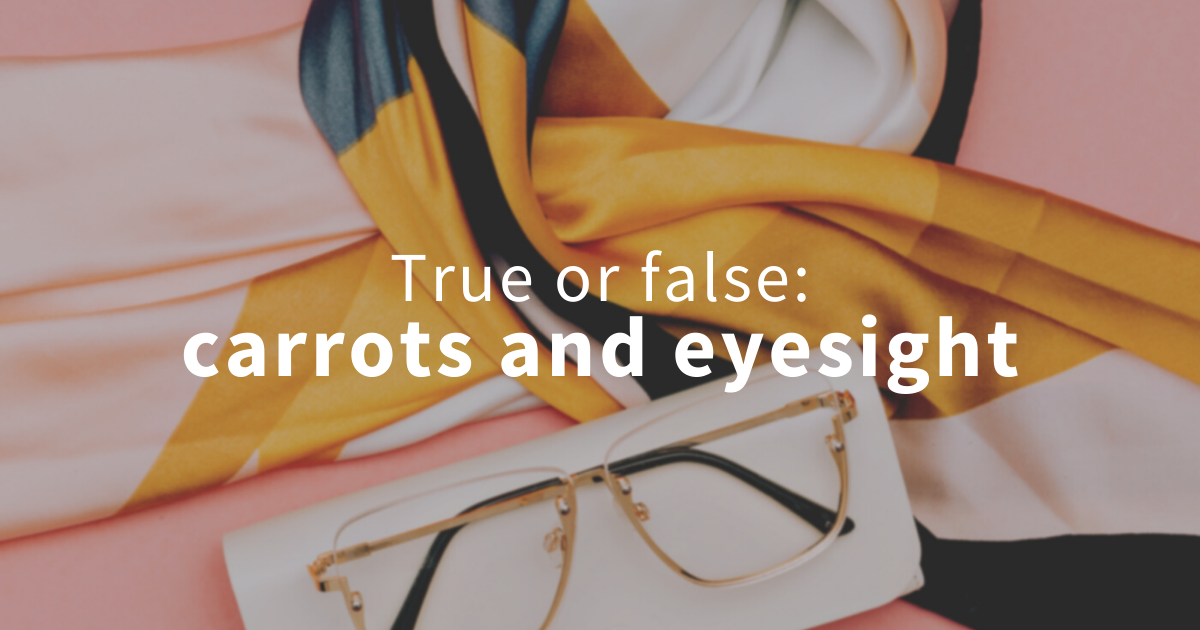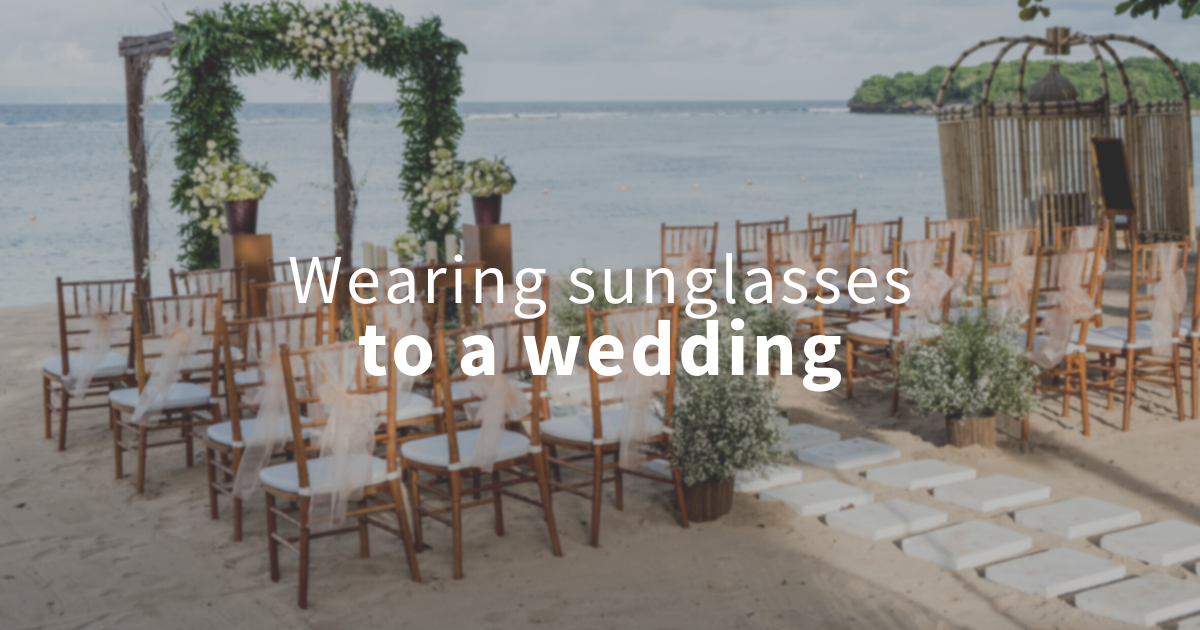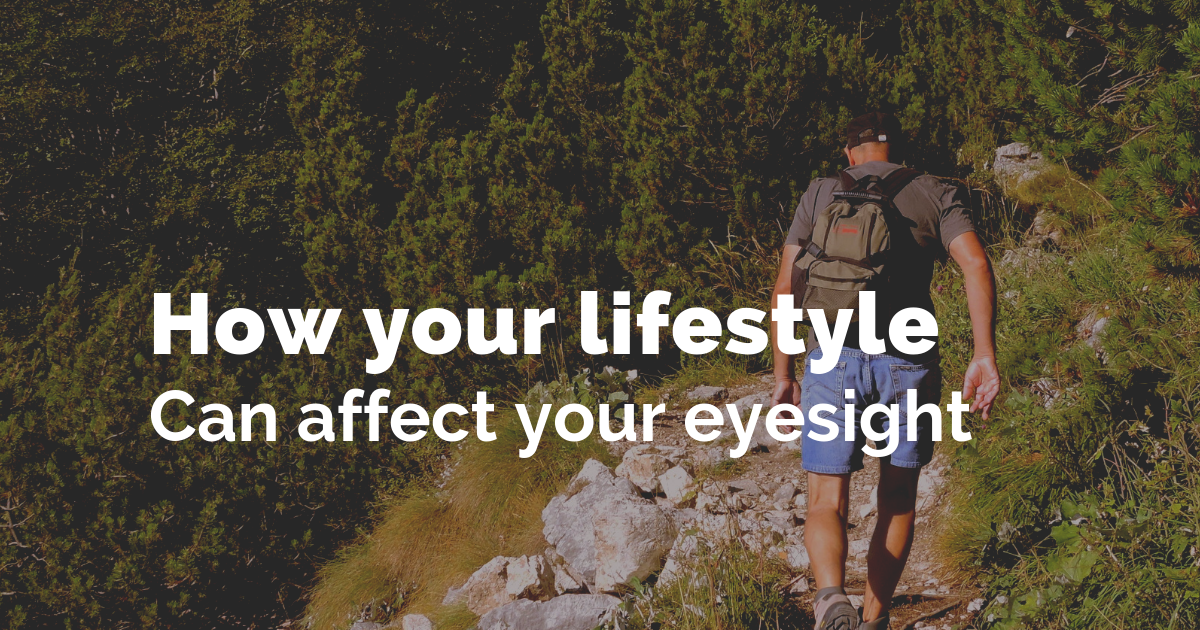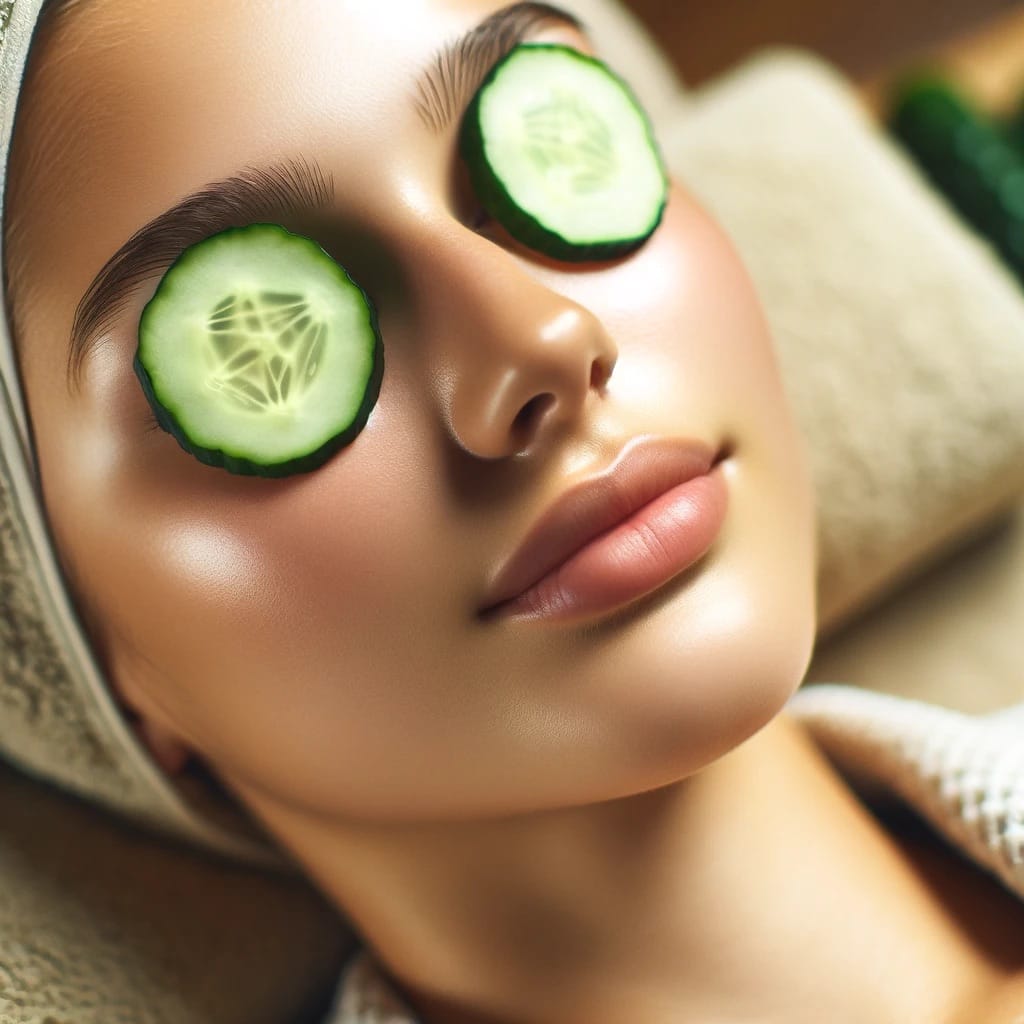Do carrots help your eyesight?
As children, most of us were fussy about eating our fruit and vegetables and witnessed the daily struggle our parents went through getting us to finish everything that was on our plate. The age-old saying that carrots would make us be able to see in the dark was probably convincing when we were children, but looking back, it’s probably not plausible that a vegetable can give us night-vision.
We know that fruit and veg are good for our overall health, however, there are certain foods which are good for eyesight due to the minerals they contain. What we really want to know is do carrots help your eyesight? It’s the one specific food that comes up again and again in relation to eye health, so let’s see if we’ll be benefitting from including carrots as part of our 5 a day.
Carrots and eyesight health – fact or fiction?
In short, yes, eating carrots can help improve eyesight under specific circumstances. But let’s delve into the science behind it.
Carrots are high in beta carotene and lutein, two antioxidants that can help reduce free radical damage to the eyes. When the quantity of free radicals in the body becomes too large, they can cause cellular damage, ageing, and chronic illnesses, including eye problems. Many red, orange, and yellow plants are coloured by beta carotene. Beta carotene, which your body turns into vitamin A, is abundant in orange carrots. Night blindness can be caused by a vitamin A deficiency, which is generally treatable with supplementation.
When you eat cooked carrots instead of raw carrots, your body absorbs and utilises beta carotene more effectively. Additionally, because vitamin A and its components are fat-soluble, eating carrots alongside a fat source boosts absorption. Most lutein is found in yellow carrots, which may help prevent age-related macular degeneration (AMD), a disorder in which your eyesight becomes clouded or lost over time.
So you really should be stocking up on carrots if eye health is a particular concern of yours, but as a good source of Vitamin A, and the chance of reducing age-related blindness, it’s a no-brainer for us all.
What foods are good for your eyesight?
Now that we’ve busted the myth on carrots, there must be some other foods that can benefit your eyesight. The foods you’ll want to have on your plate will contain Omega-3 fatty acids, lutein, zinc, and vitamins C and E which may help prevent vision disorders including macular degeneration and cataracts as you get older. To maintain your eye health, start to add these foods to your plate:
- Leafy green veg such as spinach and kale
- Citrus fruits
- Oily fish, especially tuna and salmon
- Oysters and pork
- Non-meat protein sources like eggs, nuts and beans
A well-balanced diet can also help you maintain a healthy weight while reducing the chance of obesity-related disorders such as type 2 diabetes.
How else can I look after my eyesight?
There are other ways you can look after your eye health, in combination with the right foods and minerals, you should be on the right track to combating any future eye health concerns.
Decrease your screen time
Staring at a screen all day can cause eyestrain and headaches, and in time can lead to other eye health conditions. If you can, try and take regular breaks every 20 minutes or so to give your eyes a rest. You could also invest in a pair of blue light glasses, which will reduce any symptoms caused by screen glare.
Visit an optician regularly
Everyone should have their eyes examined on a regular basis. It’s the only sure way to keep up to date with your eye health and talk about any concerns you may have. An optician can also diagnose any irregularities which may have little to no symptoms like glaucoma, which can be easily managed if caught early.
Wear sunglasses
Your eyes will be protected from the sun’s ultraviolet (UV) radiation if you wear a good pair of sunglasses. Excessive UV exposure increases the risk of cataracts and macular degeneration. All of our sunglasses come with UV400 lenses as standard, which provide 100% protection from UVA and UVB radiation. Check out our range of women’s sunglasses and men’s sunglasses now.
Maintaining healthy eyes will benefit you for years to come, and finding the right pair of glasses or sunglasses makes it even easier! We offer a try before you buy service so you can be matched with your perfect pair! Just simply choose four styles from across our opticals and sunglasses range and we’ll send them straight to your door! Still not sure what to pick, don’t worry! We’ve developed a handy face shapes guide to help you find a style for your face shape!

 Wearing sunglasses to a wedding
Wearing sunglasses to a wedding Merry Christmas from the Arlo Wolf team
Merry Christmas from the Arlo Wolf team How can your lifestyle affect your eyesight?
How can your lifestyle affect your eyesight? How to Relieve Tired Eyes
How to Relieve Tired Eyes